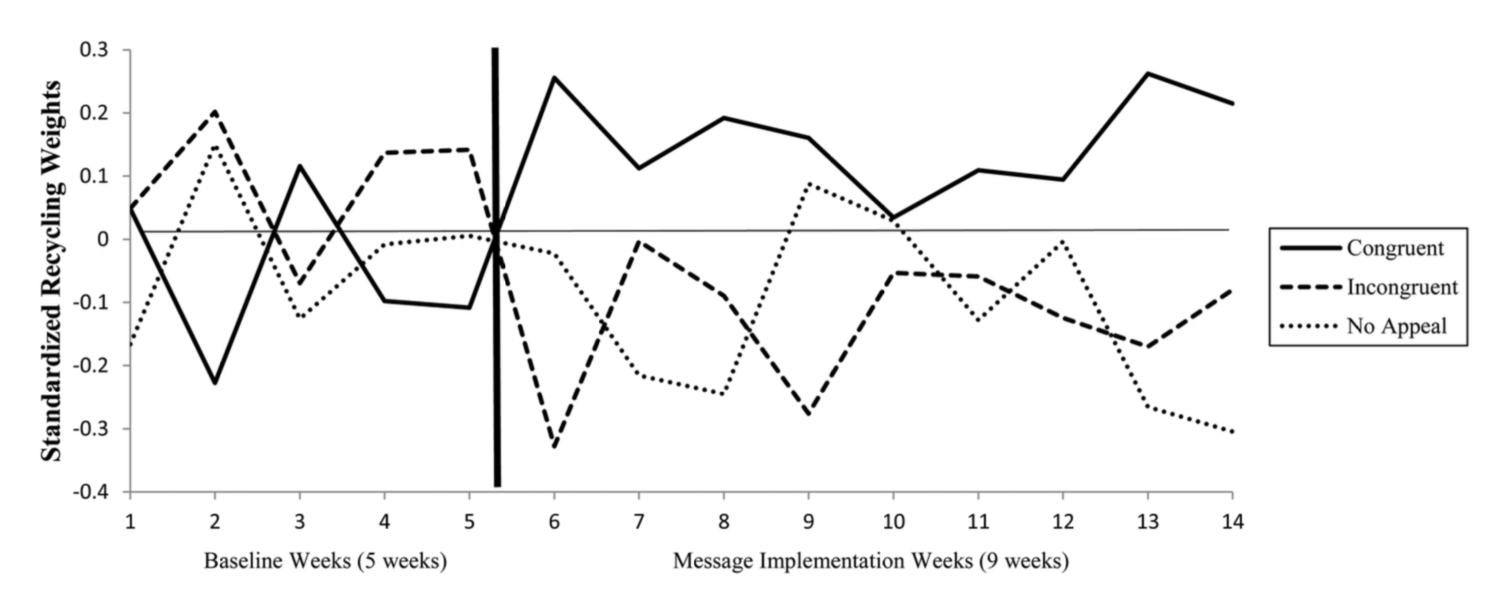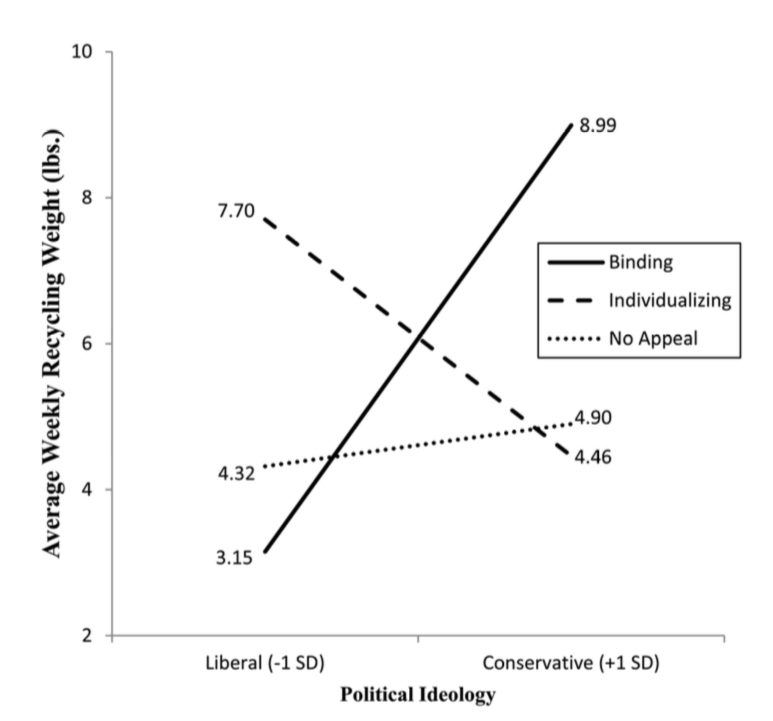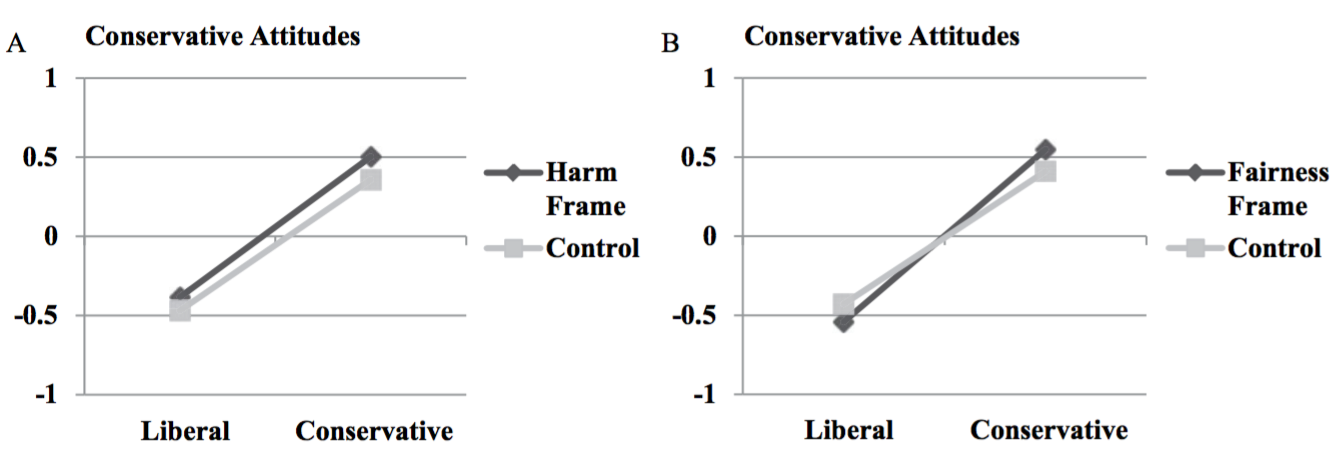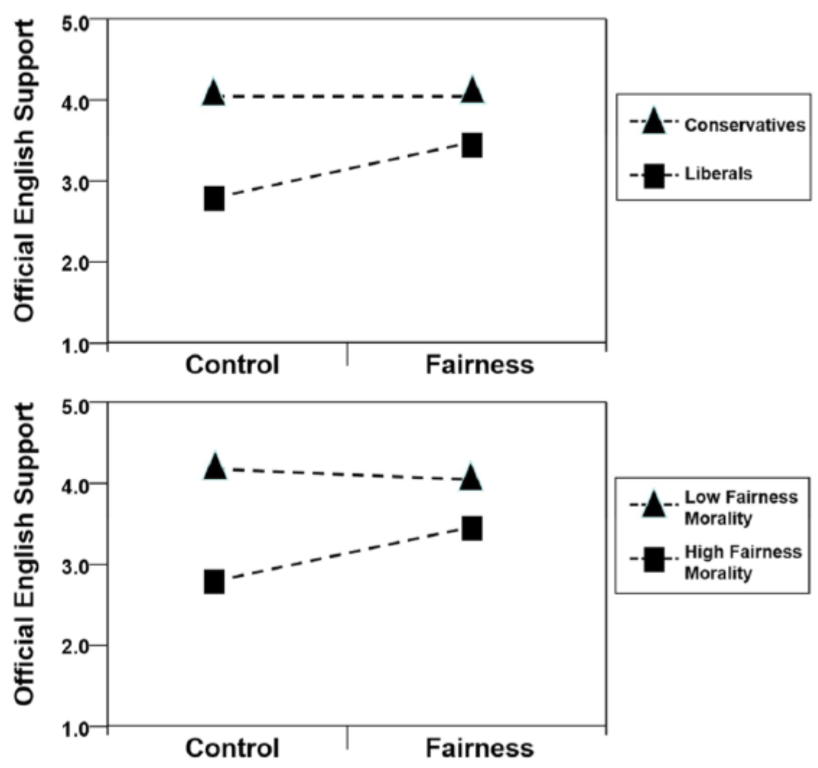Click here and press the right key for the next slide.
(This may not work on mobile or ipad. You can try using chrome or firefox, but even that may fail. Sorry.)
(If the slides don’t work, you can still use any direct links to recordings.)
also ...
Press the left key to go backwards (or swipe right)
Press n to toggle whether notes are shown (or add '?notes' to the url before the #)
Press m or double tap to slide thumbnails (menu)
Press ? at any time to show the keyboard shortcuts
Extending the Result
But can it change how people act?
Kidwell et al, 2013
‘You can make a difference by recyling because you know it’s the right thing to do. Your actions can help care for others and allow the greatest good for society. Because of people like you, we can reduce the harm to others and to the environement by recycling. You CAN make a difference’
‘You can join the fight by recycling with those like you in your community. Your actions can help us do our civic duty because recycling is the responsible thing to do in our society. Because of people like you, we can follow the advice of important leaders by recycling. You CAN join the fight!’

Kidwell et al, 2013 figure 4

Kidwell et al, 2013 figure 3
1. ‘Moral convictions and the emotions they evoke shape political attitudes’
2. There are at least two fundamental domains of human morality, including harm and purity.
3. ‘liberals and conservatives possess different moral profiles’
4. ‘liberals express greater levels of environmental concern than do conservatives in part because liberals are more likely to view environmental issues in moral terms.’
5. ‘exposing conservatives to proenvironmental appeals based on moral concerns that uniquely resonate with them will lead them to view the environment in moral terms and be more supportive of proenvironmental efforts.’
Can liberals’ attitudes also be changed using a similar ethical framing strategy?

‘the spare sentence-long, stimuli used in the studies’ (Feinberg & Willer, p. 1667)
Day et al, 2014 figure 1A-B
Can liberals’ attitudes also be changed using a similar ethical framing strategy?

Feinberg & Willer, 2015 figure 6 (on Study 6)
Can liberals’ attitudes also be changed using a similar ethical framing strategy?
Day et al, 2014 : no evidence of persuasion for liberals (but for conservatives)
Feinberg & Willer, 2015 : yes